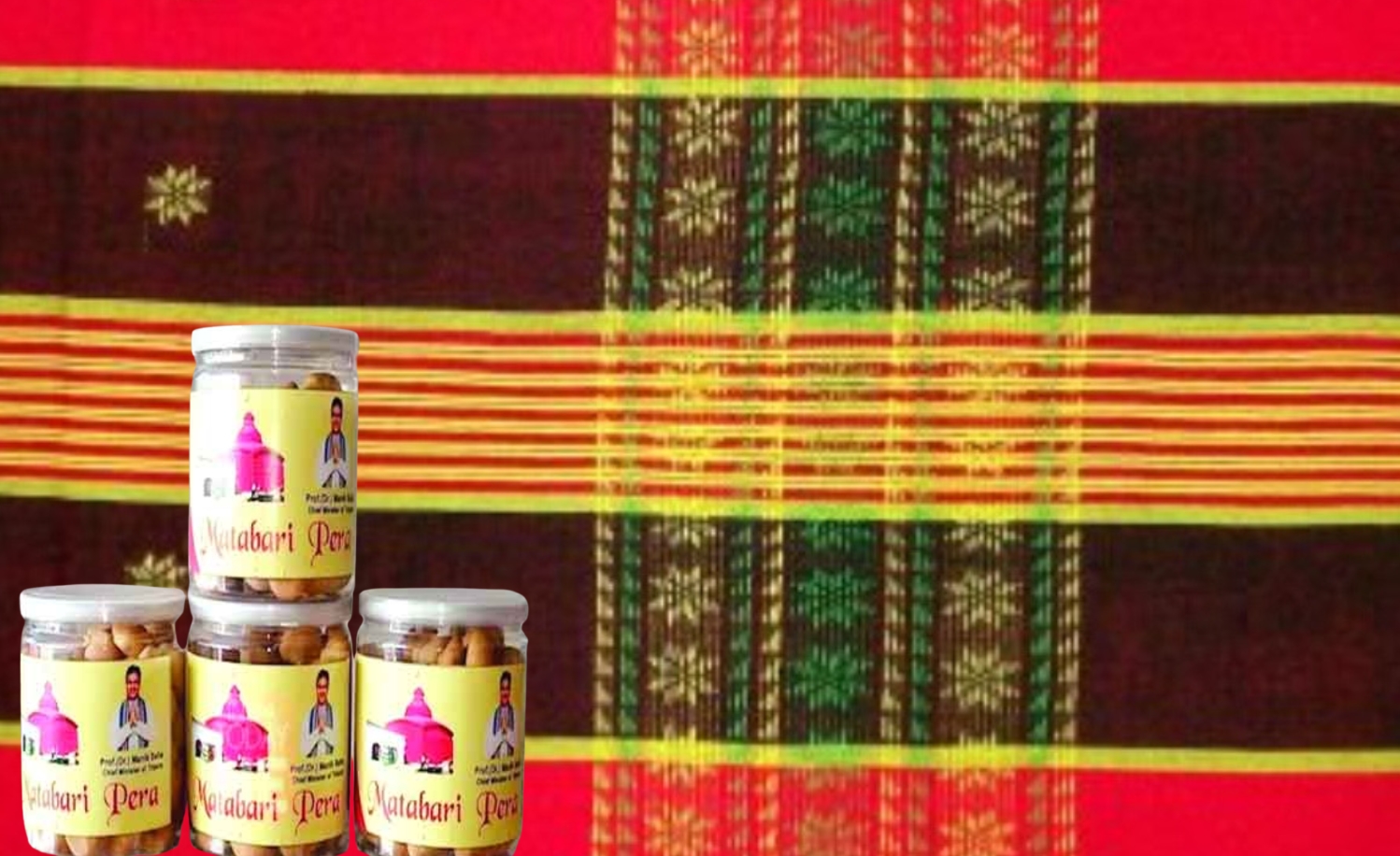Tripura: Matabari Pera Prasad, Rignai Pachara textiles get GI Tag
Three traditional products from Tripura have recently received Geographical Indication (GI) tag. The products are Matabari pera prasad and Rignai pachara textiles. With this, Tripura now has 4 GI Protected products.
Matabari Pera Prasad
The ‘Matabari pera prasad’ is a sweet offering at the renowned Tripureswari temple in Tripura. Made from milk and sugar, this delicacy is famous for its distinctive taste and deep-rooted cultural traditions.
With the increasing demand for the peda among locals and visitors, companies have started marketing the product to customers worldwide. The peda can now be ordered online, as well as through Facebook and WhatsApp.
Rignai Pachara Textiles
‘Rignai pachara’ is a traditional hand-woven attire meticulously crafted by skilled artisans using indigenous materials and techniques. This garment holds symbolic value within Tripura’s cultural tapestry and reflects the rich legacy of the region’s textile heritage.
The ‘Rignai pachara’ has garnered significant interest among urban dwellers, particularly in metropolitan areas, for its traditional allure.
Risa
Risa, another traditional product from Tripura, received the GI tag earlier this month. Known for its surprising and stylish designs, exclusive multi-colour combinations, and lasting texture, Risa carries great significance for the art of Tripuri. Tripuri tribal women make all the fabrics, including Risa, using loin looms. They create the most amazing and stylish designs by using multi-coloured warp and weft threads on the loom.
Other Product of Tripura: Queen Pineapple of Tripura
In addition to the recently recognised products, the queen pineapple of Tripura had already received a GI tag through the initiative of the North Eastern Regional Agricultural Marketing Corporation (NERAMAC). This nutrient-rich pineapple is one of the 13 fruits and vegetables from the Northeast that have been awarded the GI tag.
About GI Tag
The GI tag ensures legal protection against unauthorised imitation or misuse of the products produced in particular geographical region, safeguarding their authenticity and preserving the cultural heritage associated with them. This recognition also facilitates market access and promotion, both domestically and internationally, thereby fostering economic opportunities for local communities involved in their production.
GI tag also serves as a catalyst for sustainable development initiatives, encouraging responsible production practices and empowering indigenous communities involved in the production and trade of these products.
Month: Current Affairs - March, 2024
Category: Art & Culture Current Affairs



